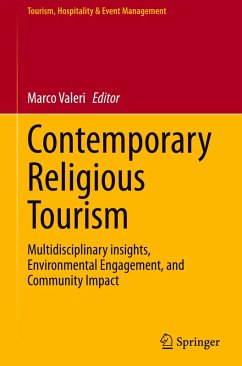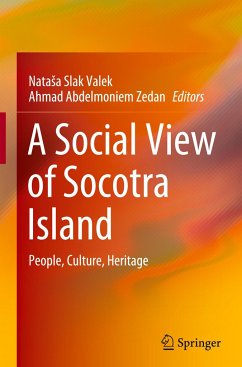
A Relational View on Cultural Complexity
Implications for Theory and Practice
Herausgegeben: Baumann Montecinos, Julika; Grünfelder, Tobias; Wieland, Josef
Versandkostenfrei!
Versandfertig in 6-10 Tagen
136,99 €
inkl. MwSt.

PAYBACK Punkte
68 °P sammeln!
This book explores the conceptual and practical implications of applying a relational view to cultural complexity. The authors take the findings of an international and interdisciplinary Delphi study on transcultural competence as a starting point and offer further analysis and interpretation from their specific perspectives. Written by experts from a variety of disciplines, the book discusses the potential contributions of a relational approach to understanding and strengthening individuals and organizations in their contexts. Through various conceptual chapters, case studies and field report...
This book explores the conceptual and practical implications of applying a relational view to cultural complexity. The authors take the findings of an international and interdisciplinary Delphi study on transcultural competence as a starting point and offer further analysis and interpretation from their specific perspectives. Written by experts from a variety of disciplines, the book discusses the potential contributions of a relational approach to understanding and strengthening individuals and organizations in their contexts. Through various conceptual chapters, case studies and field reports, it explores the role and nature of commonalities for cooperation in contexts of cultural complexity and discusses the relationship between differences and commonalities, as well as the implications for relational leadership and management.
The book is divided into four parts, the first of which introduces readers to the relational view. In turn, the second part elaborates on transcultural competence, while the third presents various case studies and field reports on experience-based learning and relationality in culturally complex settings. Finally, the fourth part sheds new light on relational leadership and the role of commonalities in organizational practice. As such, this book will appeal to scholars and practitioners in the areas of cultural and relational economics, intercultural communication, business strategy and leadership, and organizational studies.
The book is divided into four parts, the first of which introduces readers to the relational view. In turn, the second part elaborates on transcultural competence, while the third presents various case studies and field reports on experience-based learning and relationality in culturally complex settings. Finally, the fourth part sheds new light on relational leadership and the role of commonalities in organizational practice. As such, this book will appeal to scholars and practitioners in the areas of cultural and relational economics, intercultural communication, business strategy and leadership, and organizational studies.












